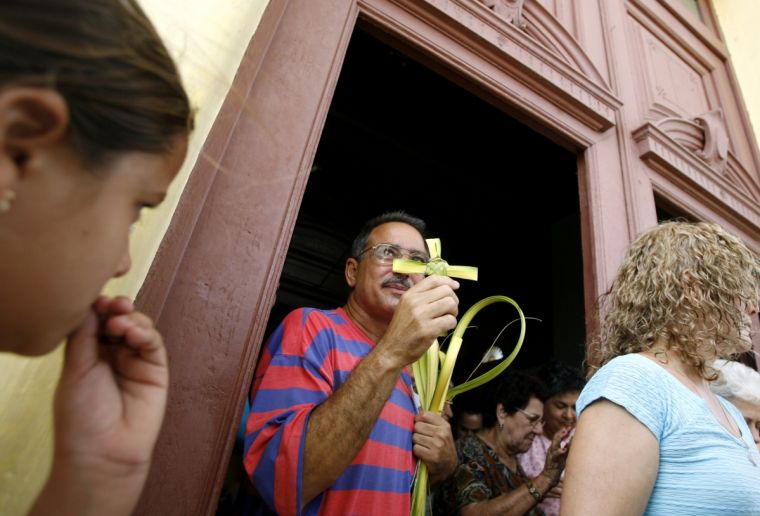2013 a bad year for religious freedom in Cuba

The advocacy group Christian Solidarity Worldwide (CSW) has renewed its call upon the leadership of Cuba to improve religious freedom in the country.
CSW's Chief Executive Mervyn Thomas said in a statement that, "We are deeply concerned by the continued deterioration in religious freedom over the past year in Cuba. Each Sunday the government continues to violate the most basic of rights: the right to freely participate in religious services and form part of a religious community without interference."
CSW documented 185 reported cases of religious freedom violation in 2013, up from a total of 120 in 2012. Most of the victims of these incidents were Catholics, but many Baptists, Pentecostals, and Methodists were also targeted.
Mostly the issues revolve around the arbitrary arrest of parishioners seeking to go to regular church services, but there were also many reports of harassment, intimidation and pressure from state security services on religious institutions.
According to CSW, these pressures originate from the Office of Religious Affairs of the Central Committee of the Cuban Communist Party. Their aim, CSW contends, is to force religious groups to change internal governing structures, statutes and constitutions, making them less democratic and therefore easier for the central government to control.
Churches that either do not submit to this rule or those that the government takes an objection to for other reasons often face legal sanctions or closure.
Examples of particularly brutal human rights violations of this kind continued right up until the end of the year. On 20 December, six members of an inter-denominational protestant group were beaten and imprisoned for nine hours in a windowless cell with no ventilation or light after attempting to carry out open air evangelism in the city of Bayamo.
A few days later, on 22 December, 60 women affiliated with the Ladies in White movement, a group protesting for the release of jailed human rights activists and dissidents, were arrested in the early hours of the morning and held in prisons, police patrol cars, and police stations across the country to prevent them from attending Sunday morning Mass.
Cuban authorities continued to push religious groups to expel or bar Cubans associated with human rights or pro-democracy groups from their congregations. Religious groups that defied these government demands saw their bank accounts frozen and entire denominations found their requests to receive foreign visitors on religious visas denied.
Improvements in some areas were tempered by failure in others. While the need of a "white card" for Cubans who wished to travel abroad was dropped in many cases, at least two leaders in the Apostolic Movement were informed in 2013 that they would not be permitted to leave Cuba, without any reason for this given by the authorities.
Describing the danger looming in 2014, Mr Thomas said: "We are particularly concerned at attempts by the government to exert control over the internal affairs of religious groups, and specifically at the new regulation that limits entire denominations and religious associations to one bank account.
"Given that the government runs the bank and regularly freezes the accounts of individual churches as a way to exert pressure or punish them, this is an extremely worrying development.
"The Cuban government's claims of reform and respect for human rights cannot be taken seriously unless these violations are addressed and real protections for religious freedom for all put in place. Once again we urge Raul Castro to make this a priority of the government in 2014."











